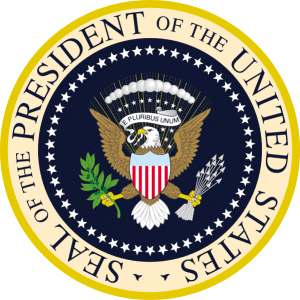
In my ideal America, the Presidential election would hold as much interest for people as the election of the Secretary-General of the United Nations.
Don’t know who that is? That’s my point. He’s largely irrelevant in the course of your daily affairs. (It’s Ban Ki-moon of South Korea, in case you have to know.)
Things being what they are, I suspect local politics seem as distant to you as are the workings of the United Nations. If you can name your Selectman, or any other local official, kudos to you. You are truly exceptional. But most folk don’t know about, and couldn’t care less about, local politics.
Every four years or so the election of the President of the United States disturbs the normally placid waters of my church. Not too much, since the folk I serve as pastor are a pretty steady bunch. Also, I don’t spend much if any time preaching on political themes likely to agitate or polarize my people.
In my last church one of my favorite people was on the opposite end of the political spectrum from me. He had been a career diplomat and was one of the architects of the G-7. (I think it’s the G-8 these days, whatever.) He had been close to President Carter. I recall my surprise upon visiting his lovely antique home on Cape Cod as I was ushered into the parlor for the first time and found myself surrounded by personalized photos of politicians like Al Gore, and Bill Clinton.
We never talked politics, he wasn’t really interested much in the subject at that point in his life. His primary interests were the work of the Holy Spirit and apologetics. We got on so well that he actually dedicated a book to me. I conducted his funeral a few years after that. I miss him.
A Local Church in a Global Economy
A big reason people get so caught up in Presidential politics is our local communities are so vulnerable to the vagaries of the global economy.
I think most people live in places where the residents have almost no control over the forces that shape the economies they depend upon. Where I live–just outside Hartford, Connecticut–we depend upon the insurance industry and military spending by the federal government.
Anything that adversely effects those things, effects my little church. This even includes the ways in which corporations organize themselves. For instance, if the trend is to send young talent out of state, to another branch of the company (and that does seem to be the trend) well, we just have to say goodbye to some of our most promising young couples.
Trying to build a local church in conditions like this is sort of like trying to build a house when people are stealing your supplies at a steady rate. Imagine showing up to the job site everyday to discover that 10% of your materials have disappeared in the night.
That’s the way things are in Connecticut, a state that is steadily losing population and industry. If you’re in one of those places that our residents are fleeing to, all I can say is congratulations. But really, can you take any credit for it? And aren’t you just as subject to forces beyond your control as we are? Remember this when things eventually turn against you.
With these things in mind, here’s my take on what appear to be the top four Presidential candidates. What follows is not a treatment of their campaigns or their tactics, subjects that seem to fascinate some people but depress me. No, what I’m looking at is philosophies of governance and how those effect local economies.
Pick Your Poison?
I can’t remember an election where the choices seem so clear-cut, nor one where all the options appear to many people to be so equally bad. I suspect that the reason is we have come to a point where every course of action simply is bad, at least in the near-term.
I know that’s a depressing thought, but why do we think that there should always be a good solution to our problems? Perhaps a country can paint itself into a corner and the only way out is messy.
Of the choices, I do favor one. But not because the candidate is actually advocating what I believe to be the best way forward. I favor him because he will force us to do what must be done by benign neglect. The others will distract us from the task at hand. I’ll let you figure out who I favor by the summaries below.
Ted Cruz–One Hand Clapping
Regardless of what you may think about him as a person, Cruz is a constitutional purist. He knows the constitution and he is faithful to it.
But the constitution was written at a time when local communities were far more vibrant and self-sufficient than they are today. With the industrial revolution and the rise of transnational corporations, local interests have been marginalized. Because the global economy can act like a plague of locusts, descending on a community and stripping it bare, welfare states have become “safety-nets” to catch those of us who are not been able to join the swarm as it moves on to the next field.

The problem is many people rely upon these safety nets now. Like Elsa the lioness, these folk can no longer hunt for themselves. The people who depend upon the welfare state most are scared to death of Ted Cruz. And that’s not just the folk who may come to mind.
It has been noted in many places that the business wing of the Democratic Party fears Cruz and his chums. Why? Because the new economy has no use for many people. The political philosophy Cruz promotes would require a revitalization of local institutions and extended family networks to work. And that’s the last thing people in Silicon Valley or Wall Street want. Those things tend to gum up the works of global capital.
The Bill Gates and Mark Zuckermans of the world want little economic nomads to make their silicon dreams come true. But they don’t want people dying in the streets. That could be messy and bad for business. Better to just put the economically unproductive on the dole.
Donald Trump–Economic Nationalism
No, I don’t think The Donald is Hitler. But I do think he is promoting economic nationalism.
Trump says he wants to, “Make America Great Again” and many of his supporters appear to be the folk most harmed by the loss of low-skilled American manufacturing jobs to people overseas.
I understand this. I grew up in the rust-belt of western Pennsylvania. I remember the day when a guy could graduate from high school and go straight into the factory and enjoy good pay and benefits. The young wives of these blue collar men didn’t have to work outside the home. They were often the glue of neighborhoods and local schools–they held things together.
It may not have been the best of all possible worlds, but it wasn’t too bad either. Kids played outside under the supervision of mothers who knew the names of all the kids in the neighborhood and dad brought home the bacon.
The problem, as we now know, was the conditions that made this way of life possible were not under the control of the people who benefited most from them.
And I’m not so sure we can put the cat back into the bag. With high tech and the fluidity of capital and the game of chicken we’ve gotten ourselves into with debt and growth, I just don’t see how we can bring those days back again. And attempts to do so seem to me to be a formula for global conflict.
Hillary Clinton–Status Quo
Perhaps the weirdest thing about this election is the female candidate represents the status quo.
Hillary represents established interests: public unions, the federal bureaucracy, apparently even established foreign interests. There is nothing in her campaign or her history of public service that would indicate to me that she has much interest in the devolution of power a revival of localism. She is a centralizer. It would appear that a victory for Hillary would mean nothing will change, things would probably get worse.
Bernie Sanders–Turning America into the DMV
If Ted Cruz takes the vitality of the local institutions for granted that make his political philosophy feasible, Bernie Sanders takes the business interests for granted that would fund his vision.
As a scion of the New Left, Bernie talks a good game about local interests and so forth, but he is actually an enemy of traditional local institutions, especially the extended family. Marxists don’t see proletarianization as something to lament. Instead it is an opportunity to increase our dependence upon the state. For Bernie and his followers, welfare state safety nets are not the inevitable but regrettable by-product of corporate capitalism, they are the means of our liberation from the onerous demands of familial duty.
Regardless whether you share my convictions about the New Left or not, Bernie Sanders would only further weaken local interests and local economies by creating even more dependency on distant institutions than we already see today.
So who will I support in the election? I’ll let you guess. But in the long-run I don’t really think it will matter who wins, because sooner or latter (hopefully sooner) we will have to restore what the locusts have eaten.
(This is an edited version of an earlier post.)












